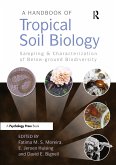Understanding the molecular underpinnings of life is a task requiring insight from multiple disciplines. In that likeness, biologists have moved toward a systemic approach drawing from the expertise of computational scientists, chemists, engineers, and mathematicians. This collaborative approach requires translation of biological semantics into common language so that the molecular mechanisms can be decoded to promote health, design devices, and preserve environmental homeostasis. This book provides context for biological forms and functions by starting at the molecular level then building outward to include trends in biomedical technology, evolutionary impact, and the lasting implications for our biosphere. In that likeness, biological concepts underlie most wastewater treatment and provide foundation for the hazardous waste treatment being done today. Furthermore, the relationship between biology and geology is starting to emerge as a key relationship for self-healing concrete and reinforcement protection within concrete.
Hinweis: Dieser Artikel kann nur an eine deutsche Lieferadresse ausgeliefert werden.
Hinweis: Dieser Artikel kann nur an eine deutsche Lieferadresse ausgeliefert werden.




![Report of the Water Committee [microform]: Submitting the Reports of the Engineers on the New Water Works of Montreal Report of the Water Committee [microform]: Submitting the Reports of the Engineers on the New Water Works of Montreal](https://bilder.buecher.de/produkte/65/65530/65530427m.jpg)



